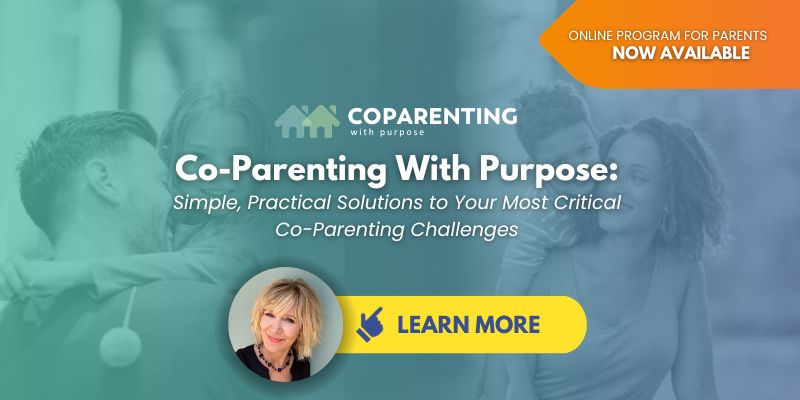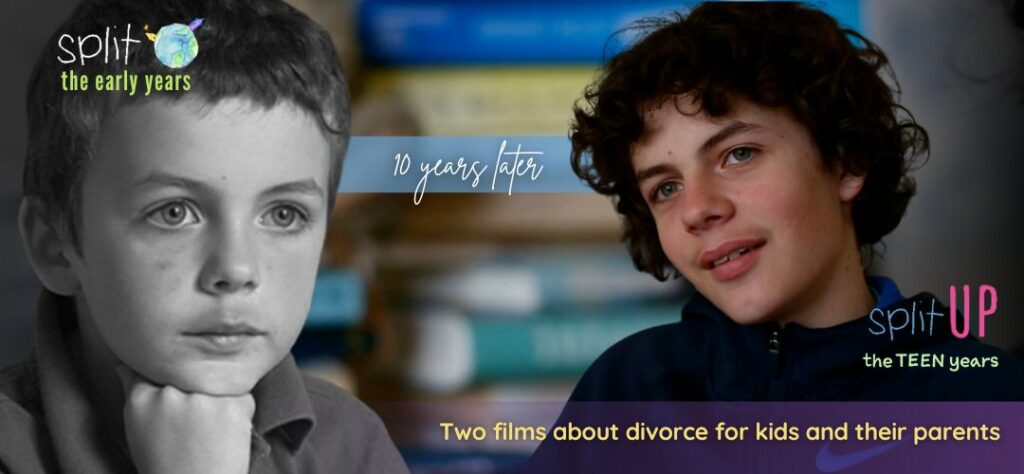Five Things Every Kid Needs to Know When Parents Divorce

1. You don’t have to handle it all on your own.
Although it may feel like the last thing in the world you want to do, talking to someone you trust really does help. If you don’t feel like you can talk to your Mom or your Dad, find someone safe who will listen to you. You may want to consider a close family relative, best friend, teacher, coach, a friend’s parent, counselor or maybe a friend of the family.
While chatting online may feel like an easy way to gain advice or meet other kids who understand, be sure to use good judgment and don’t make virtual connections your only source of support.
Parents: Many times kids don’t tell parents how they really feel about divorce. It’s not uncommon for kids to worry that if they share their feelings with you they’ll just make things worse or possibly hurt your feelings.
Do your best to reassure your children that they can talk to you. While you may have told them before it’s okay to ask questions or share their feelings, it helps to say it more than once. Also make sure your children have other safe people to talk to about the separation. Carve out time to chat with your kids about who they can turn to for support and advice.
BTW – Parents if you’d like to find out how kids really feel about divorce, check out the documentary SPLIT: a film about divorce for kids (and their parents). It features twelve amazing kids sharing their own real-life stories about divorce. Completely unscripted and full of straight from the heart wisdom, this film gives parents a chance to hear from kids like their own but not their own. Deeply moving with a wonderful balance between laugh out loud moments and raw meaningful insight.
2. You can learn from your parent’s divorce.
You may think that if your parents couldn’t work things out then there’s no hope for you. Actually lots of kids use what happened in their family as an opportunity to learn how to make things better or different in their own lives.
Look at it this way, suppose your parents were awful drivers or terrible at math does that mean you’re destined to have a lots of car wrecks or flunk algebra? Of course not.
Your future isn’t determined by your parent’s past. There are lots of children with divorced parents who grow up have strong relationships and good marriages. What kind of relationships you have is up to you.
Parents: It’s important for your children to understand that two good people don’t always make a good couple. While you and the other parent may not have been able to make your relationship work, find ways to role model good values about relationships for your children.
Show your kids how to accept responsibility when things don’t work out in a relationship and grow into a better person. Help them to see the good qualities in each of you, so they can feel good about themselves.
3. You don’t have to choose.
When parents split up, it can be tempting to want to blame one or both of your parents for what happened. Remember it’s not your job to sort out what went wrong between Mom and Dad. It takes a lot to make a marriage work and in most situations, each parent has some responsibility for the split. Sometimes when parents are feeling angry or hurt with each other, they may try to pressure you into taking their side or being just as angry as they are.
Regardless of what happened, your parent’s problems with each other have nothing to do with you. You should never have to take sides, pick one over the other or cut a parent out of your life. You have every right to love both of your parents as much as you want.
Parents: Avoid putting your children in the middle of adult issues. While it can be tempting to tell children your side of the story, exposing kids to adult details about your break up usually backfires. Avoid making a difficult situation even worse by respecting your children’s need to love both of their parents. Don’t put them in the position of being judge and jury.
4. Your feelings don’t have to be the same as Mom’s or Dad’s
Just because Mom and Dad are unhappy with each other doesn’t mean you have to be angry or upset with one of your parents. In most families, kids and parents have different opinions, ideas and feelings about divorce. It’s okay if your feelings aren’t the same as your parents.
Parents: Don’t make the mistake of assuming you know how your children feel about the divorce. While you are all dealing with this change at the same time, understand that how your kids feel may be very different than the way you feel.
Using collective language like, “We feel betrayed” or “Your mother/father has left us” sends a subtle yet strong message that kids aren’t allowed to be emotionally independent. Do your best to give your kids the emotional space they need to express their feelings without guilt or pressure.
5. Your family is still your family.
You might think now that your parents have split up, you don’t have a family any more. Actually divorce is a change in a family not the end of a family. Getting used to having two homes can be tough at first but usually over time things get better.
PS – You also don’t have to pick or choose one place as your “real” home and the other as some place you “visit.” Even if you spend more time with one parent than the other, you still share a life both of your parents. It’s okay for both places to feel like home. Be sure to let your parents know what will help you feel comfortable in each place.
Parents: No matter how time is spent between households, kids do better when they feel connected to both homes. Help your kids feel like they’re still an important part of each parent’s life by:
👉🏼 Referring to both places as homes (your home with Mom and your home with Dad)
👉🏼 Not using the term “visit” or “visitation” to refer to your children’s time with a parent. Instead talk about time with Mom and time with Dad.
👉🏼 Creating a special space in each home for children.
👉🏼 Providing children with a set of everyday items in both homes.
When your parents won’t stop fighting with each other…
Realize it’s not your fault
When your parents continually argue about things involve you, it’s hard not to feel some responsibility for their problems. However, your parents are adults and they have a choice about how they handle their disagreements. Although it may feel like you ought to be able to do something to keep the peace, the truth is there’s nothing you can do to fix or change how your parents feel or how they behave with each other.
You have no control over how they feel, what they say or what they do. The only person you can change is you.
Your parent’s choices don’t have to determine your future
If your Mom and Dad don’t get along, take heart you don’t have to follow their lead. You always have the ability to design a different life for yourself.
In truth, one of the best things you can do to minimize the effects of your parents fighting, is take good care of yourself. Make sure you have a good group of friends and don’t be afraid to reach out to other adults you trust when you’re having a tough time.
Learn from others
It can be hard to think about having a healthy relationship when you have parents who are constantly fighting with each other. Often kids wonder how can I possibly have a good relationship if I’ve never seen one? Consider paying attention to other people around you and looking for role models who reflect the kind of family or marriage you would like to have some day.
You don’t have to let your parent’s problems with each other shape the course of your life or who you are. What kind of life you want to have is up to you.
Keep in mind that knowing what you don’t want, is sometimes just as important as knowing what you do want.
Tune it out
Being caught in the middle of fights between your parents sucks.
When your parents aren’t getting along think about tuning it out. Although you can’t stop what’s going on between them, you can control how much you let it impact you. While they may be upset with each other you don’t have to get upset too.
Some times it an help to think of yourself as a bystander or someone on the outside looking in. You can notice what’s going on and how they’re choosing to deal with each other. However, that doesn’t mean you have to be a part of it.
If it gets to be too much, reach out to someone you trust who can be a sounding board when you need to vent or sort through your feelings.
Are you a splitster that has some wisdom to share? Weigh in and offer your thoughts in the comment section below.
Until next time…








